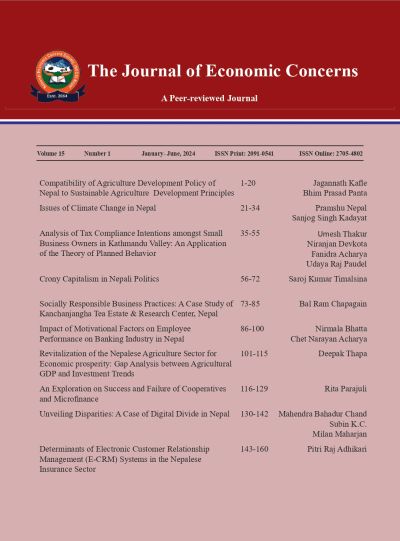Compatibility of Agriculture Development Policy of Nepal to Sustainable Agriculture Development Principles
DOI:
https://doi.org/10.3126/tjec.v15i1.70235Keywords:
Sustainable Agriculture Principles, Agriculture Development Policy, Policy Intervention, Sustainable Practices, Food Security, Agriculture CommercializationAbstract
The agricultural sector, on which the majority of Nepal's population depends, faces significant challenges due to global warming, climate change, and rising global food insecurity. This underscores the need for a carefully designed agricultural development policy focused on sustainable practices. This study aims to assess the compatibility of key policy interventions in agricultural development of Nepal with sustainable agriculture principles. These policies prioritize the conservation, promotion, and utilization of natural resources, environmental protection, and biological diversity to encompass economic, social, and environmental attributes of sustainable agriculture development in Nepal. This paper scrutinizes various aspects of Nepal's agricultural development policy, including governance systems, bureaucratic and institutional structures, supportive policies and programs, and regulatory frameworks, to evaluate their compatibility with sustainable agriculture principles. The findings indicate a strong orientation of Nepal's agricultural development policy towards sustainability. Legislative, policy, and governance provisions serve as a foundation for steering the agricultural sector towards sustainable practices. However, despite these positive aspects, significant challenges remain, including the prevalence of traditional agricultural systems and constraints such as limited financial resources, technical expertise, and knowledge among farmers and smallholders. Overcoming these obstacles will require considerable efforts to achieve the desired outcomes in sustainable agriculture.




